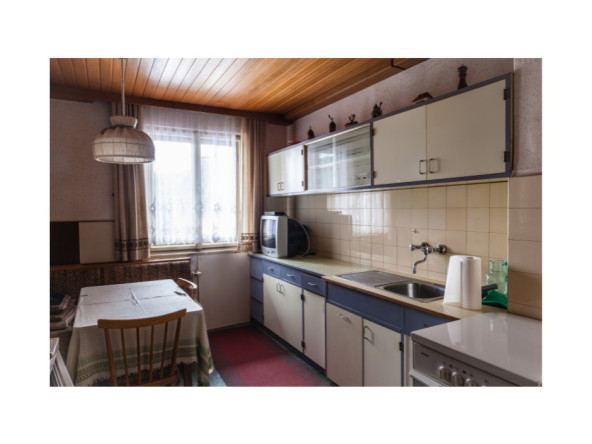Article Courtesy of Bigger Pockets
Short-term rentals (STRs) have gotten a lot of attention over the past decade with the rise of Airbnb, VRBO, and other companies. And, during the COVID-19 pandemic, STRs turned out to be a good bet for real estate investors. Data suggests that revenue per room was only down about 4.5% in the first half of 2020 – despite a 65% decrease for hotels and an estimated loss of $1.3 trillion for the tourism industry as a whole.
What is a Short-Term Rental?
Much like a hotel, short-term rentals are properties that are rented out to guests on a nightly basis, rather than via a monthly or annual lease. Also like a hotel, short-term rental properties are fully furnished and equipped with everything guests may need during their stay. In most states, guests must stay for 30 days or fewer for it to be considered a “short-term” stay.
Owners often buy short-term rentals as a secondary or vacation home, not with the intention of living in them. Since the creation of sites like Airbnb and VRBO, real estate investors are realizing the true potential of a short-term rental property. What used to be considered a side-gig for property owners looking to make passive income is now a booming industry with high-profit potential.
Why Purchase a Short-term Rental Property?
Very lucrative
First things first – short-term rentals are highly lucrative.
Because of the nature of STRs, you can earn more money per month than a traditional rental – provided you’ve done your homework and landed a great property in a popular area.
Just think about it. If you charge $300/night for a property that’s booked for 18 nights out of the month, then you can gross $5,400/month for a property that’s booked, on average, about 60% of the time.
You’ll have to calculate in the property’s rental-related expenses – which we’ll talk about later – but let’s say it costs $2,500/month to pay the taxes and the mortgage, maintain the property, and cover other expenses. When we consider that the average three-bedroom home in the United States is rented out at nearly $1,300/month, you’re still way ahead by opting for a short-term rental.
High Demand
If you can nab a property in a sought-after tourist destination at a reasonable price, then you’ve hit the short-term rental jackpot.
Vacation rental demand is through the roof, and platforms like Airbnb and VRBO have made huge strides against the hotel industry, so properties in these areas are typically an excellent investment. As long as you conduct your research and find a property that checks the boxes, you won’t have a hard time finding occupants.
More Growth To Come
Properties in prime vacation spots also tend to appreciate relatively well. It’s not a bad gamble to purchase something in an area that’s experiencing a lot of growth. Plus, since short-term rentals offer more flexibility in the rates you can charge, you’ll be able to take advantage of price appreciations happening market-wide immediately rather than waiting for the end of a lease agreement to hike the rates.
The Pros of Short-Term Rental Properties
The potential for higher income is just one of the many reasons that owning a short-term rental property is worth it. Here are a few more:
They Can Be Less Maintenance
This may sound counterintuitive, but a short-term rental can be easier to maintain than a long-term rental in several ways:
- If you hire a property manager, they’ll tidy up your rental and make sure it’s ready for your next guests.
- Many vacation property companies include a cleaning fee, so even if you’re doing the cleaning yourself, the fee can pay for future maintenance needs.
- Since your renters are staying for shorter periods, you can clean more frequently and detect potential issues before they become problems.
You Manage the Schedule
You control your vacation home’s calendar, which means you can decide when you want to rent it out and when you want to stay there. If you want to spend a week in your summer beach house or take two weeks to redo your porch, you can do so with the click of a button.
You Can Optimize Your Pricing
You can alter the price of your rental as you see fit. If your rental property is in the middle of a popular ski destination, increase the price in winter. It’s also common to raise rates on weekends and holidays, so don’t miss out on easy opportunities to increase your cash flow.
Sometimes, it may be to your benefit to reduce your pricing to remain competitive. Michael from the earlier example can offer a special rate for someone looking to stay in his rental home for a month. Instead of paying a monthly rate for all 30 days, which is $4,900, can he price it at $4,000 for the month. He’ll still make more money than if he rented it out for just 20 days, and he’ll remain competitive. Plus, he knows he’s less likely to get guests who only want to stay a couple days during the middle of the week, anyway.
They’re Great for New Investors
Your short-term rental should increase in value year-over-year. The longer you own and maintain it, the more valuable it’ll become. Homes worth $100,000 in 1967 are worth over $960,000 in 2022. Your rental may not experience the same housing inflation, but it’s highly likely that it’ll appreciate in value.
Tax Benefits of Short-Term Rentals
Short-term rental properties are teeming with tax advantages! Here are just a few:
- Maximize your deductions: All your marketing, management, upkeep, and insurance costs are deductible. This also includes business meals, educational expenses, and an eligible home office.
- Track your trips: If you’re making frequent trips to and from your rental to set up and manage the property, you can deduct travel time. Also, if you buy a vehicle you’re using primarily to rehab, stage, and manage your short-term rental, you can deduct its entire purchase price. If you write off $24,000 on your car, you can save close to $8,000 in taxes!
- Appreciate depreciation: If you spend $7,500 on furniture, appliances, and entertainment for your rental, you can deduct that money immediately during the first tax season. Just be sure to keep an itemized receipt.
Are you reaping all the tax benefits from your short-term rental? If your answer isn’t immediately, “yes!” read Reduce Your Taxes with Short-Term Rental Properties.
The Cons of Short-Term Rentals
No investment strategy is without flaws, including short-term rentals. Here are the main downsides of owning a short-term rental property:
They Can Be High Maintenance
If you don’t have a property manager, running a short-term rental can become a full-time job. You may end up in charge of:
- Scheduling bookings
- Screening renters
- Collecting payments
- Maintaining the property
- Doing all the marketing.
If you’re not great at customer service and marketing, there’s also a steep learning curve to managing a rental. You’ll learn a lot, but it may be more effort than you want to put in.
There’s a Lack of Steady Cash Flow
It’s not uncommon for short-term rentals to make two or three times more than their long-term counterparts. However, they lack the predictability investors of long-term properties enjoy. When the pandemic started, demand for vacation properties plummeted, and many companies went out of business.
Although the pandemic is an extreme example, last-minute cancellations and seasonal vacancies are common. Also, there may be months where you’re booked for thirty days straight, and others where you could struggle to book a single weekend.
Less Thorough Screening Processes
For long-term rentals, landlords and property managers usually run prospective tenants through a rigorous screening process that may include:
- Rental history
- Background check
- Credit check
- Proof of income
- Proof of income
- Verifiable references
Short-term rentals lack this luxury. Sometimes, the only information you have to go on is their online reviews. Also, since you’ll have more traffic coming through your vacation rental, you are assuming greater risk.
You’re Paying the Bills
In general, long-term tenants pay your utility bills because they’re the ones using them. Short-term renters don’t, so water/sewage/garbage, electricity, and internet all come out of your pocket.
Your Neighbors May Not Approve
People usually want to live in a comfortable, quiet environment where they feel safe – especially if they have kids. If there’s a new cast of characters living next door each week, your neighbors may get frustrated with you.
Let’s be realistic: not everyone renting from you will be an ideal house-guest. They may be loud or throw parties, or do something else your neighbors won’t approve of.
You May Be Subject to Strict Guidelines
Your neighborhood may have an HOA with special rules for short-term rental properties or may prohibit them altogether. Research your neighborhood extensively and read HOA bylaws before purchasing any property. If you violate their rules, you could be subject to a lawsuit. Read one to learn more about laws and regulation challenges.






